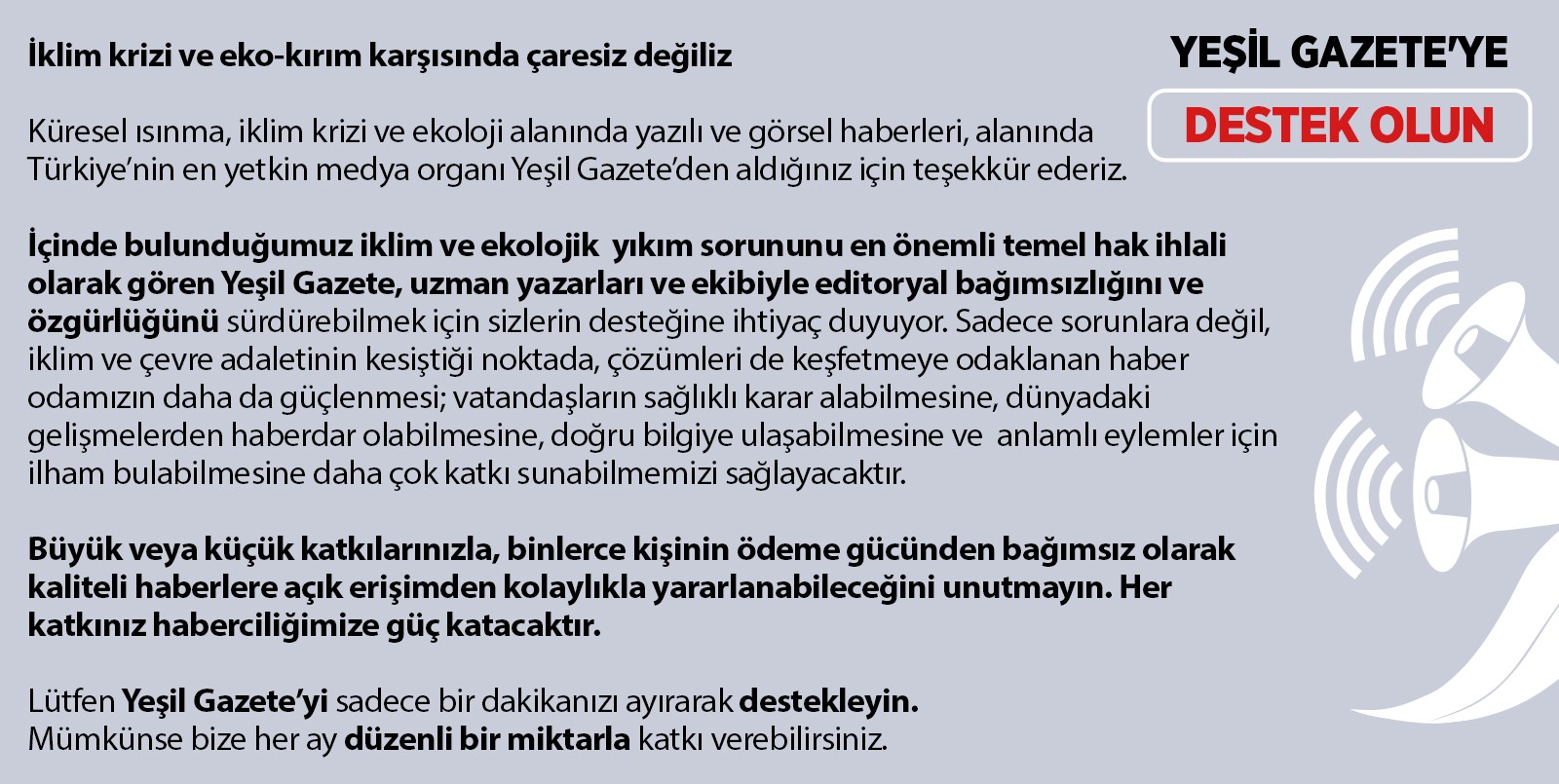At the 28th Conference of the Parties (COP28) to the United Nations Framework Convention on Climate Change in Dubai, United Arab Emirates, a draft agreement calling for a gradual transition from fossil fuels was approved after long negotiations.
The final text avoids the words ‘phase out’ and ‘phase down’, which have been the source of much debate among countries, and instead refers to the need for a ‘transition’ from fossil fuels.
Sultan Al-Jaber, President of COP28, said the agreement offers a “comprehensive response” to climate change and represents “a robust action plan to keep 1.5 degrees achievable.” “A balanced plan to address emissions is built on common ground and strengthened by full inclusivity,” Al Japer said, adding, “This is a historic package to accelerate climate action. This is the UAE consensus,” he said, adding that he was “proud” of the targets set.
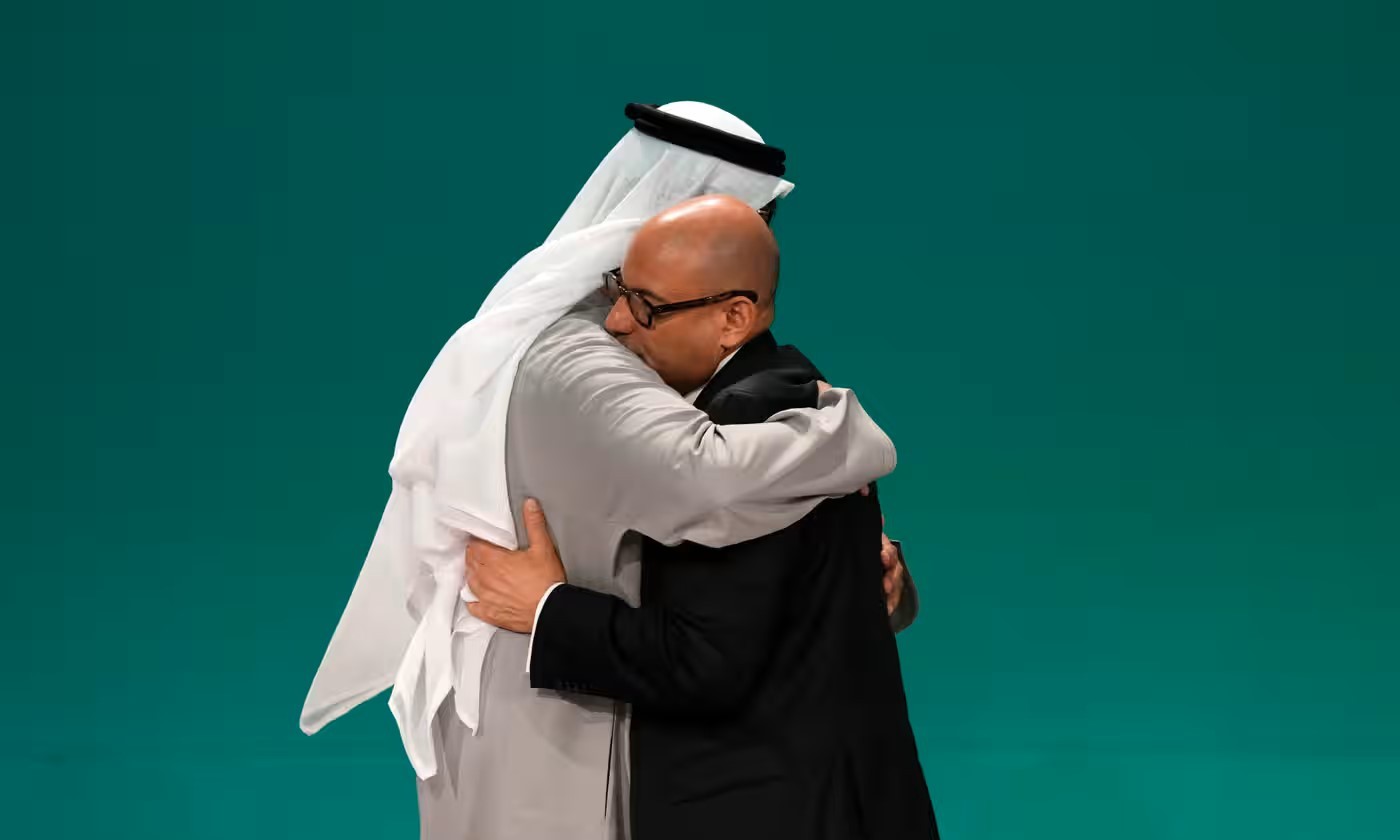
What is in the text?
The Global Stocktake decision text, which has been amended many times, calls on countries to phase out the use of fossil fuels in their energy systems, as demanded by many participants, and recognizes that deep, rapid and sustained reductions are needed to limit temperature increases to 1.5C. However, it does not include an explicit commitment to phase out or phase down fossil fuels, as many countries, climate organizations and scientists have been calling for.
Instead, it calls for “a fair, orderly and equitable transition away from fossil fuels in energy systems and accelerated action in this critical decade to achieve net zero by 2050 in line with science.”
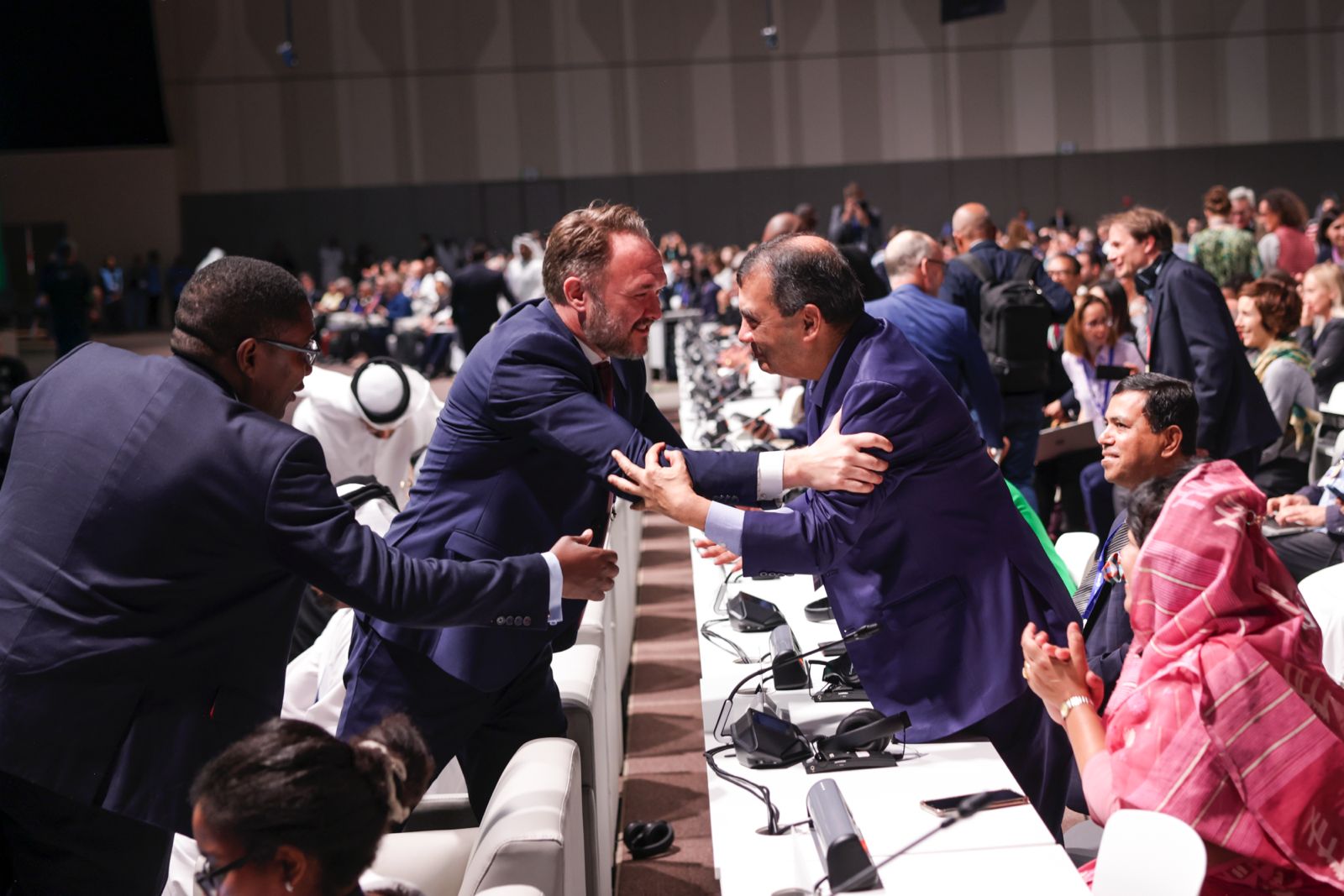
The agreement also calls for tripling global renewable energy capacity by 2030 and stepping up efforts to reduce coal power plants. It also calls for the development of a list of “zero and low emission technologies” such as “renewable energy, nuclear power, low-carbon hydrogen production, including mitigation and elimination technologies such as carbon capture, utilization and storage, especially in hard-to-reduce sectors and low-emission sectors.
Decisions from climate summits are non-binding and have no sanctions if countries fail to comply. For the small island states most vulnerable to the impacts of the climate crisis, the final text contains “a series of loopholes” that will prevent the world from reducing greenhouse gas emissions drastically enough to limit them. Even if all that is promised in the draft is realized, global warming is certain to rise by 1.5 degrees above pre-industrial levels, the island nations say. For them, this is a “death sentence” in their own words.
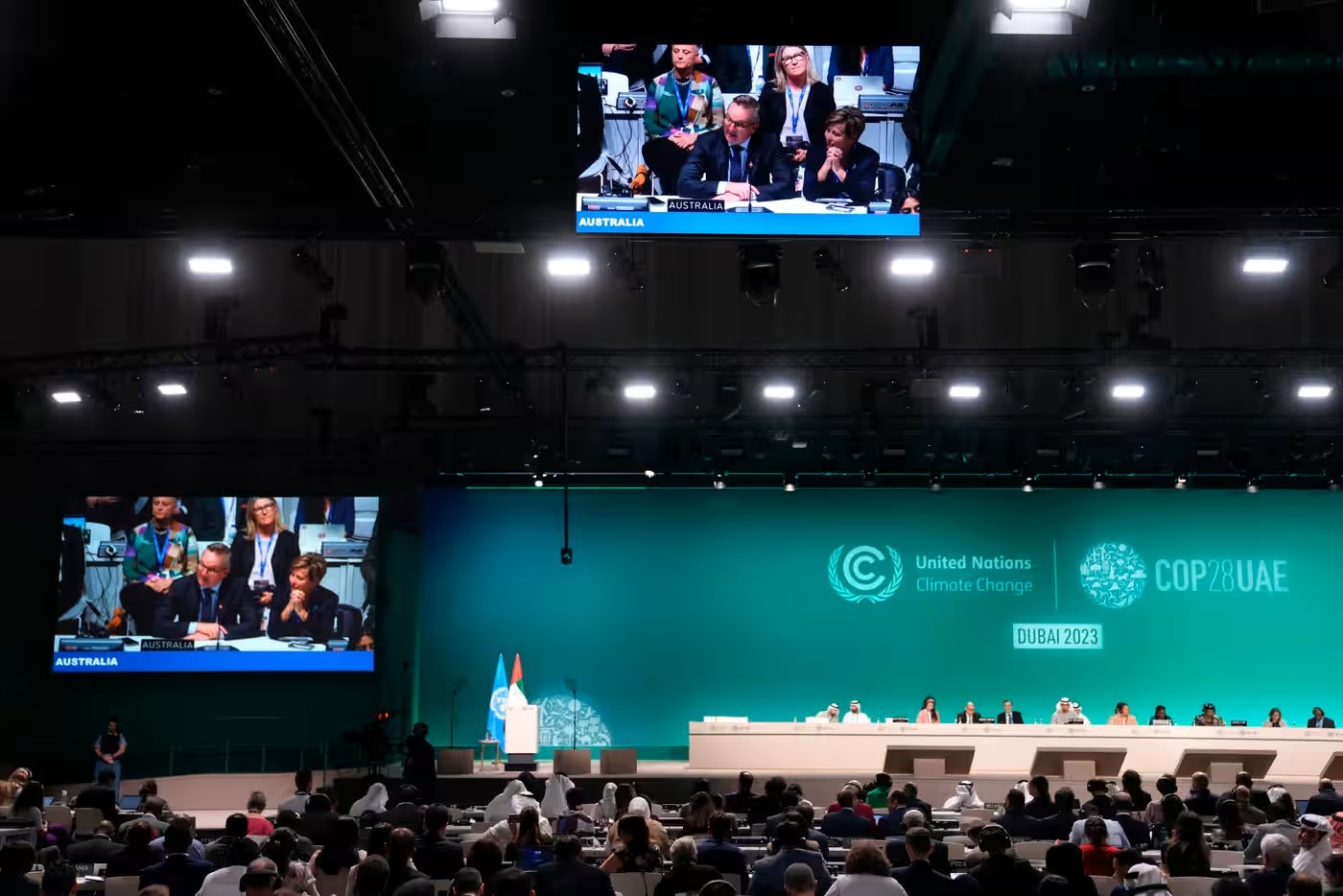
Financing is still a big problem
Developing countries still need hundreds of billions of dollars in financing to help them move away from the devastation caused by fossil fuels.
Julie-Anne Richards of the Loss and Damage Collaboration said there had been some “improvement” on loss and damage and that this was mentioned in various parts of the text, such as the finance chapter: “Which is very important. But there were many opportunities to improve loss and damage that were missed overnight.”
There are sections of the text that do not mention loss and damage, which should be integrated alongside mitigation and adaptation as the third pillar of climate action, as reflected in the Paris Agreement.
“This makes efforts to address loss and damage seem like an option rather than a critical component of climate action. More importantly, we are still missing a standalone agenda item on loss and damage. This leaves developing countries fighting at every summit to find space to discuss this issue.”
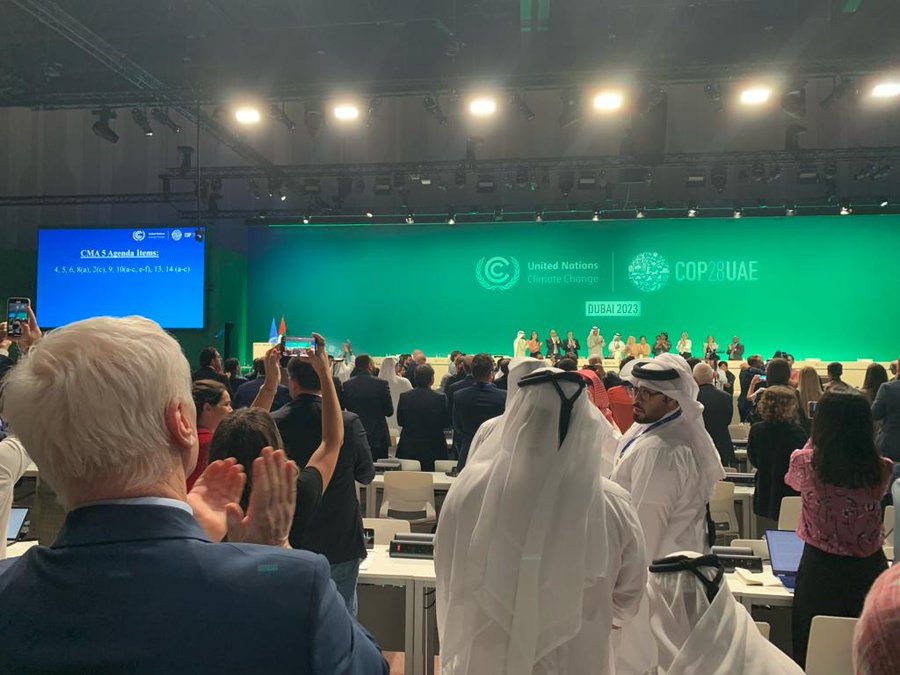
Opponents
The agreement has its shortcomings, but the articles discussed met with stubborn opposition from the world’s oil-producing countries throughout the summit. Saudi Arabia tried to remove all references to fossil fuels, then tried to add references to carbon capture and storage technology, which it claims to love but has never invested in. Russia also continued its opposition throughout the summit to prevent the final text of the agreement.
The EU and the western world are satisfied
The “first mention of fossil fuels” in the agreement was considered important by most negotiators.
EU climate chief Wopke Hoekstra thanked the president at the meeting for his leadership, vision and ‘tremendous determination’: “We have seen that it has been a tremendous privilege to work with all of you, to team up, to break down divisions and to unite. Because, dear friends, when we are all gone, our children will be there to deal with everything, good and bad, that we have left them. And with them in mind, this becomes a day of gratitude and a day of quiet resolve. Humanity has finally done what has long needed to be done. We have spent 30 years getting to the beginning of the end of fossil fuels.”
Teresa Ribera, co-chair of the EU delegation and Spain‘s environment minister, said: “We are mindful of what Samoa has said; climate justice still needs our engagement and work. But this step forward and our collective commitment does much more in a critical decade. We welcome the strong leadership of all delegates. We think this is a very meaningful and positive step forward, and we are very happy to take it with all of you.”
Done!!! Deal shows Paris delivers and we can go beyond! #COP28 pic.twitter.com/TAhJLPMFV3
— Teresa Ribera 🌹 (@Teresaribera) December 13, 2023
UN secretary-general António Guterres tweeted after the agreement was adopted: “Whether you like it or not, the phase-out of fossil fuels is inevitable. Let’s hope it’s not too late.”
To those who opposed a clear reference to phase out of fossil fuels during the #COP28 Climate Conference, I want to say:
Whether you like it or not, fossil fuel phase out is inevitable. Let’s hope it doesn’t come too late. pic.twitter.com/q2LqMw75K1
— António Guterres (@antonioguterres) December 13, 2023
US climate envoy John Kerry said the outcome document sent a very strong signal to the world, even if no one saw their views fully reflected: “We need to stick to the 1.5°C limit. In particular, our next set of nationally determined commitments must be consistent with it.
Kerry announced that the US and China, the world’s two largest emitters, “intend to update their long-term strategy and have agreed to invite other parties to join them.
Small island states: Not enough
“This process has failed us,” said Anne Rasmussen, Samoa’s chief negotiator as chair of the Alliance of Small Island States (AOSIS).
Rasmussen pointed out that the AOSIS was not in the room when the adoption of the text was announced, and addressed President Al Jaber said: “Let me thank you and your team. We didn’t want to interrupt the standing ovation but we were confused. It seems you just made the decision and the small island states were not in the room.
Your draft has many strong elements. We welcome the technology. The question we ponder is whether it is enough. We conclude that it does not provide the course correction we need. “It is not enough to cite science and ignore what science tells us we should do.”
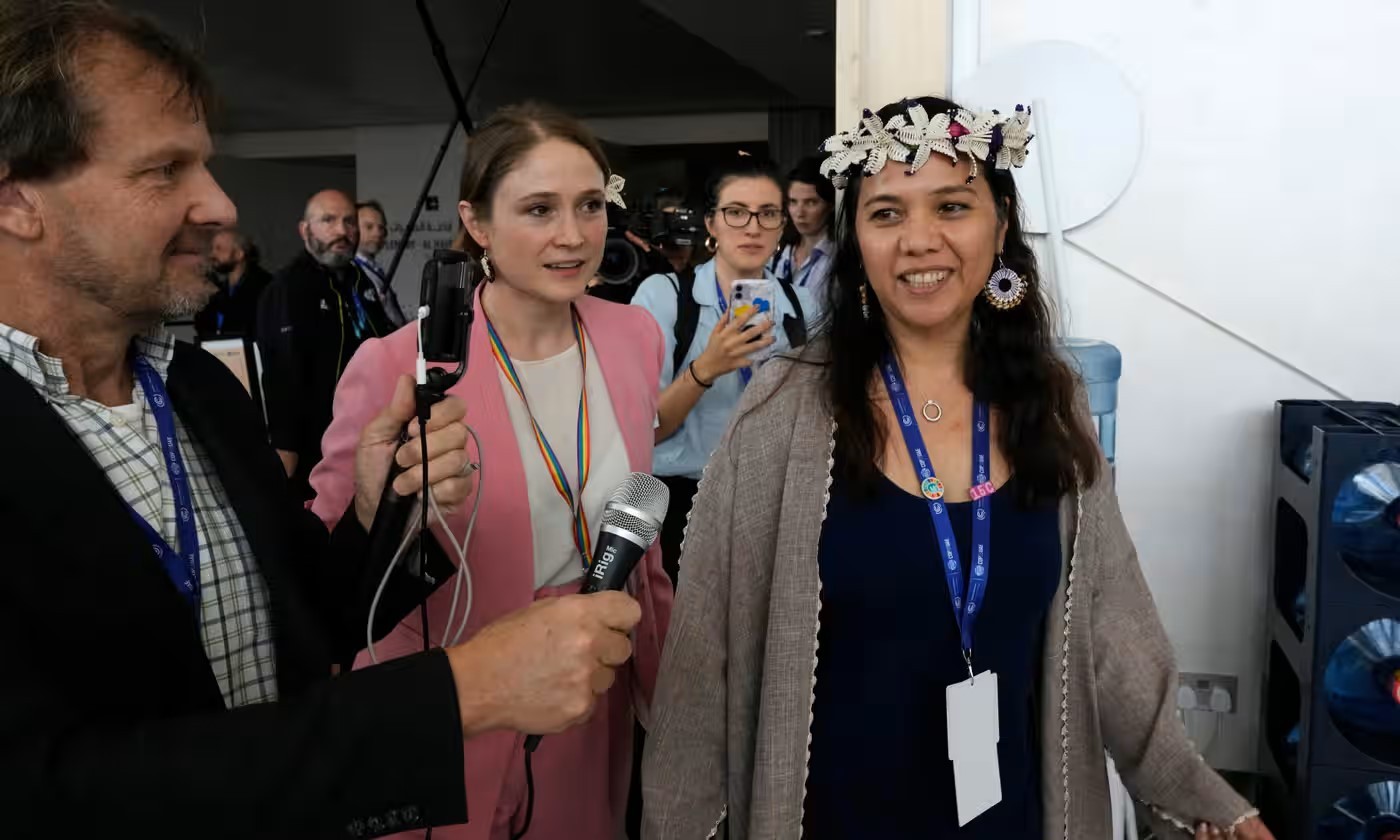
Antigua and Barbuda delegate Aaliyah Tuitt warned the plenary about concerns over wording and loopholes on “transition fuels”: “LNG and natural gas are all fossil fuels and we need to move away from all of them; we want to sound the alarm that transition fuel is here to stay in developing countries.”
“Thank you for mentioning fossil fuel transition for the first time in the text,” said the delegate, thanking the chair for his work.
While AOSIS expressed dissatisfaction with some parts of the draft (especially on science, transition fuels and finance), they did not say that they objected to the text as it was, or that they challenged its legitimacy.
The Chilean delegate expressed concern about the wording on fossil fuel subsidies and transition fuels.

The consensus among many developing countries is that gas should be seen as a methane-dominated fossil fuel, not a transition fuel derived from coal, and should be phased out completely. But the draft does not include a clause on this.
The Chilean delegate added that much work remains to be done on the global target on adaptation. He expressed concern about the situation of middle-income countries’ access to climate finance, noting that many of these countries have the most ambitious targets, but their ambition and commitment are not rewarded or even ignored: “We need a situation where our efforts are rewarded with new financial support and conditions that incentivize the private sector.”

Reactions from climate organizations
Climate justice advocates said the draft fell far short of what is needed for a just transition. They also highlighted the lack of a way to raise the hundreds of billions of dollars in finance that developing countries need to help transition away from coal, oil and gas.
Lord Nicholas Stern, head of the Grantham Research Institute at the London School of Economics and author of the Stern report on climate finance, commented on the COP28 outcome:
“The results of the global assessment clearly show that the world is badly derailed from the task of realizing the goals of the Paris Agreement. Failure to achieve the Paris agreement would leave the world in a very dangerous situation.
The agreement reached today is historic and of real value. The decision on the global stocktake clearly recognizes for the first time in the conclusions of the United Nations climate change summit that the world must move away from all fossil fuels and towards cleaner alternatives, especially renewable sources. It is clear that this transition must be worldwide, large-scale and urgent. While the text of the resolution is not as strong as some had hoped, the transition needs to be strong and urgent if we are to achieve net zero greenhouse gas emissions globally by 2050.
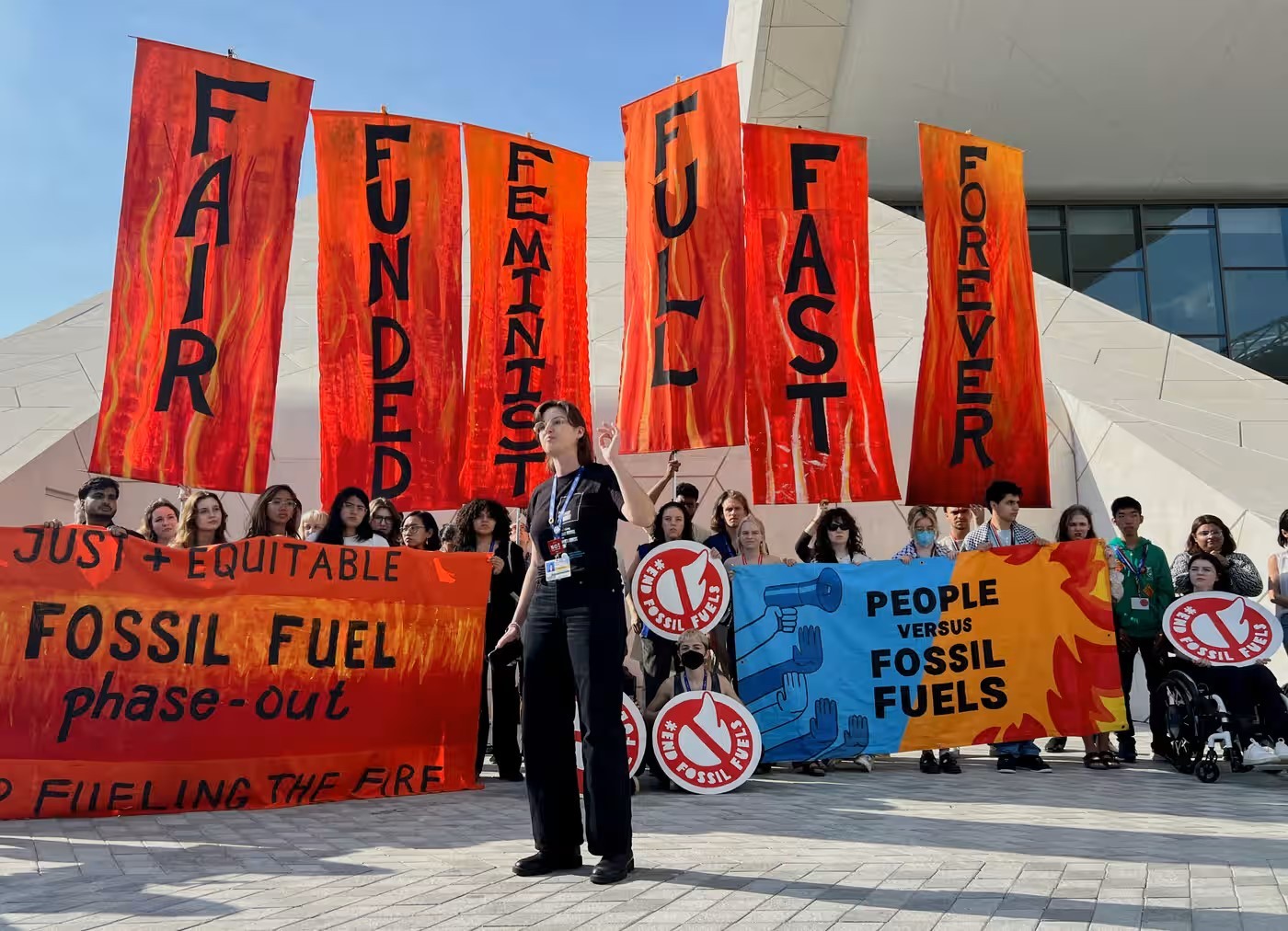
Countries now need to respond to the outcomes of COP28 through a massive increase in investments in zero emissions and climate-resilient economic development and growth, especially in developing countries. The text of the Global Stocktake decision rightly highlights the need to mobilize trillions of dollars of investment to accelerate cuts in greenhouse gases, strengthen adaptation and resilience, and respond to loss and damage.
The goals of the Paris Agreement will not be realized without a large and rapid increase in investment, especially in emerging markets and developing countries.”
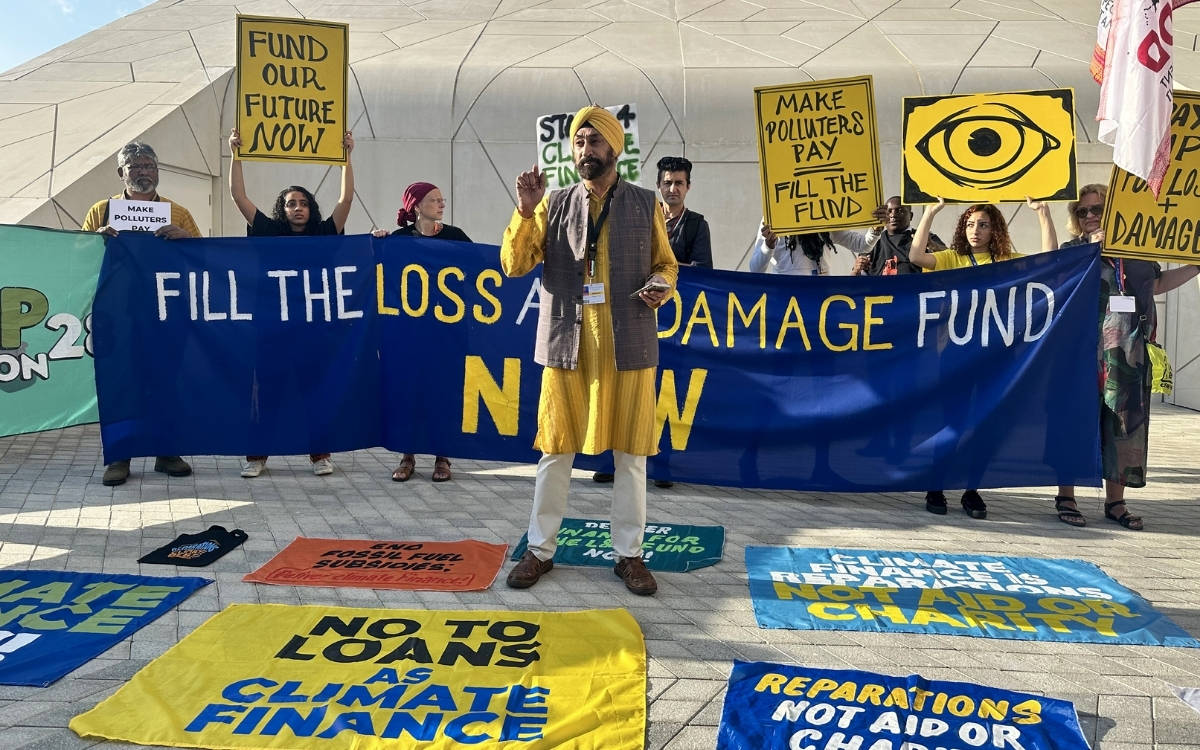
Here are the first reactions to the text from representatives of other organizations:
Bill Hare of Climate Analytics: “Overall, the text looks like a major victory for oil and gas producing countries and fossil fuel exporters:
- No commitment to phase out fossil fuels
- No commitment to peak emissions by 2025
- Draft that opens the door to wrong solutions on a large scale, such as carbon capture, etc.
- It refers to “transition fuels” and is supported by gas exporters. “
Harjeet Singh, head of global political strategy at Climate Action Network International: After decades of evasion, COP28 has finally shone a blinding light on the real culprits of the climate crisis: Fossil fuels. It set a long overdue direction to move away from coal, oil and gas. But the solution is marred by loopholes that offer the fossil fuel industry numerous escape routes based on unproven, unsafe technologies. The hypocrisy of wealthy nations, especially the US, in continuing to massively expand their fossil fuel operations while paying lip service to a green transition is being exposed.”
May Beove, Executive Director of 350.org: “The power of the people pushed us to the brink of history, but leaders have fallen short of the future we need. It’s frustrating that 30 years of campaigning managed to get ‘fossil fuel transition’ into the COP28 text, but it’s surrounded by so many loopholes that it’s been rendered weak and ineffective.”
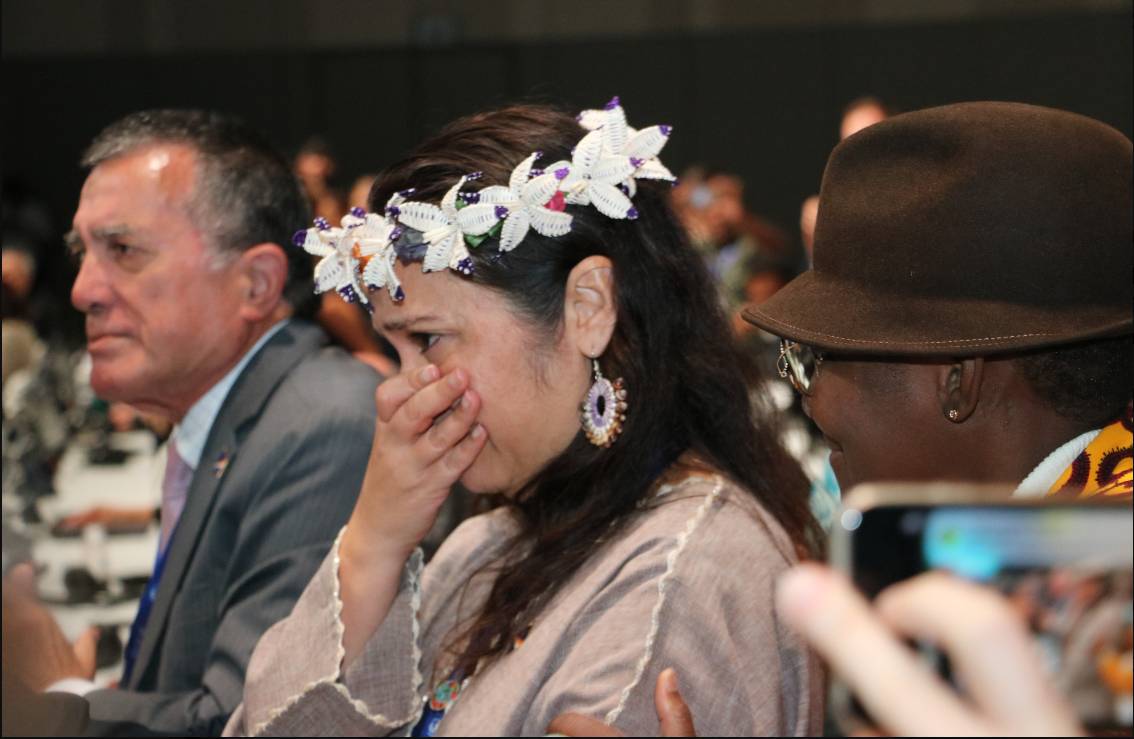
Mohamed Adow of Power Shift Africa: For the first time in 30 years of climate negotiations, the words fossil fuels have become a COP outcome. The genie will never be put back in the bottle, and future climate summits will unscrew the dirty energy even more. But while this sends a strong signal that fossil fuel companies will try to keep dirty energy on life support, there are still too many loopholes in unproven and expensive technologies like carbon capture and storage. ”
Neil Thorns, Advocacy Director at CAFOD: “COP28 confirmed what we need to do by explicitly referring to a world without fossil fuels. But with so little new finance, it is not clear ‘how’ it will happen fairly and quickly to meet the needs of low-income countries whose populations are suffering from the climate crisis. It risks pushing these countries further into debt crisis.”
Michael Jacobs of the ODI global think tank: “It’s a compromise, of course, but the push to phase out fossil fuels is now unquestionably on the rise. All eyes will now be on the national emissions plans that will be in place by 2025. The decisions made here are only a guide: under pressure from their people,
Turkey’s call for COP31
Turkey’s chief negotiator Fatma Varank said “we have experienced a very successful organization in every aspect” after the publication of the final draft. Speaking at the General Assembly, Varank said, “We are extremely pleased that COP29 will be held in our sister country Azerbaijan next year. The fact that the first meeting of the IPCC next year will be held in Istanbul in January shows how much importance we attach to climate action.”
Turkey also repeated its offer to host COP31.


